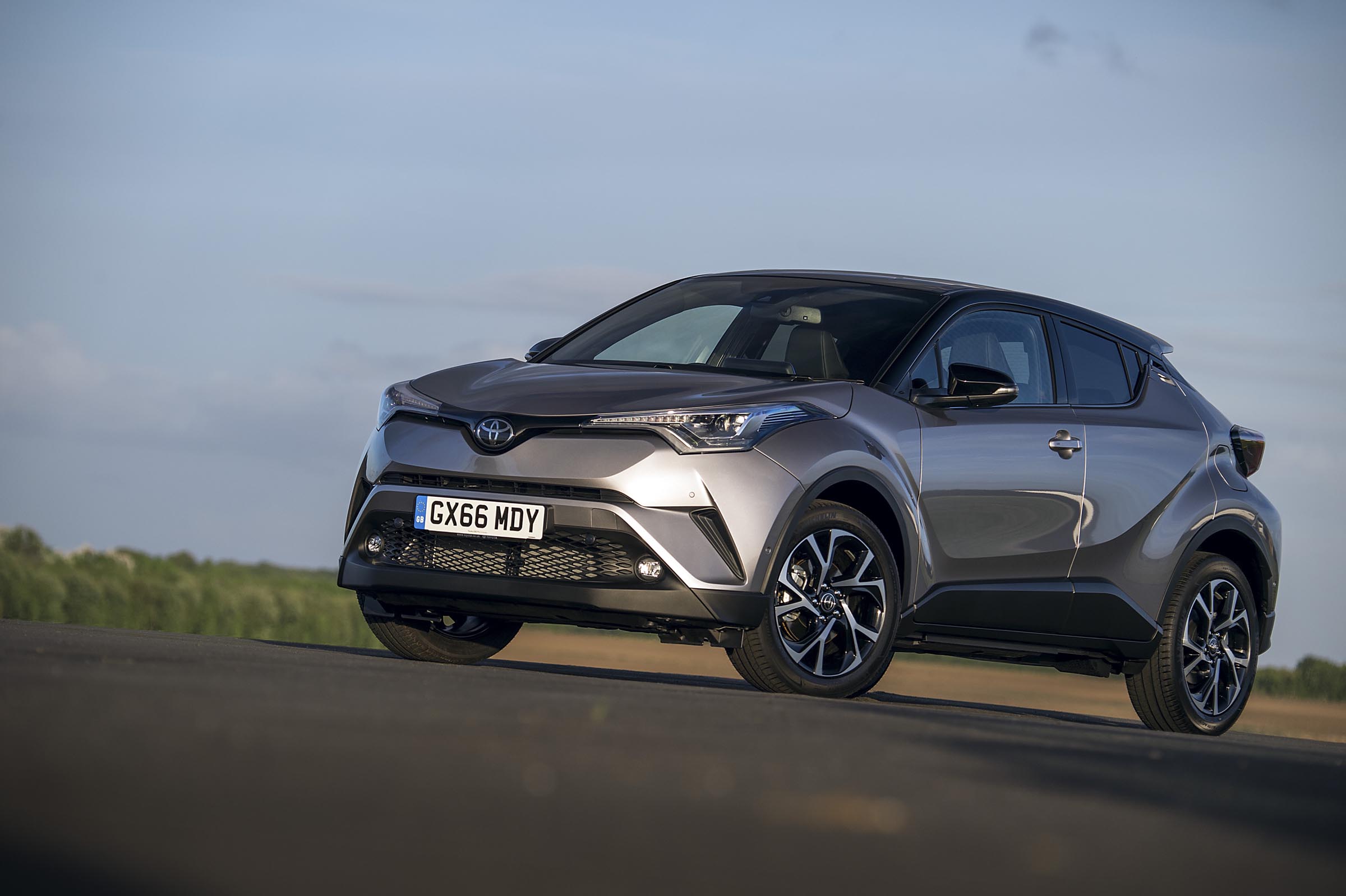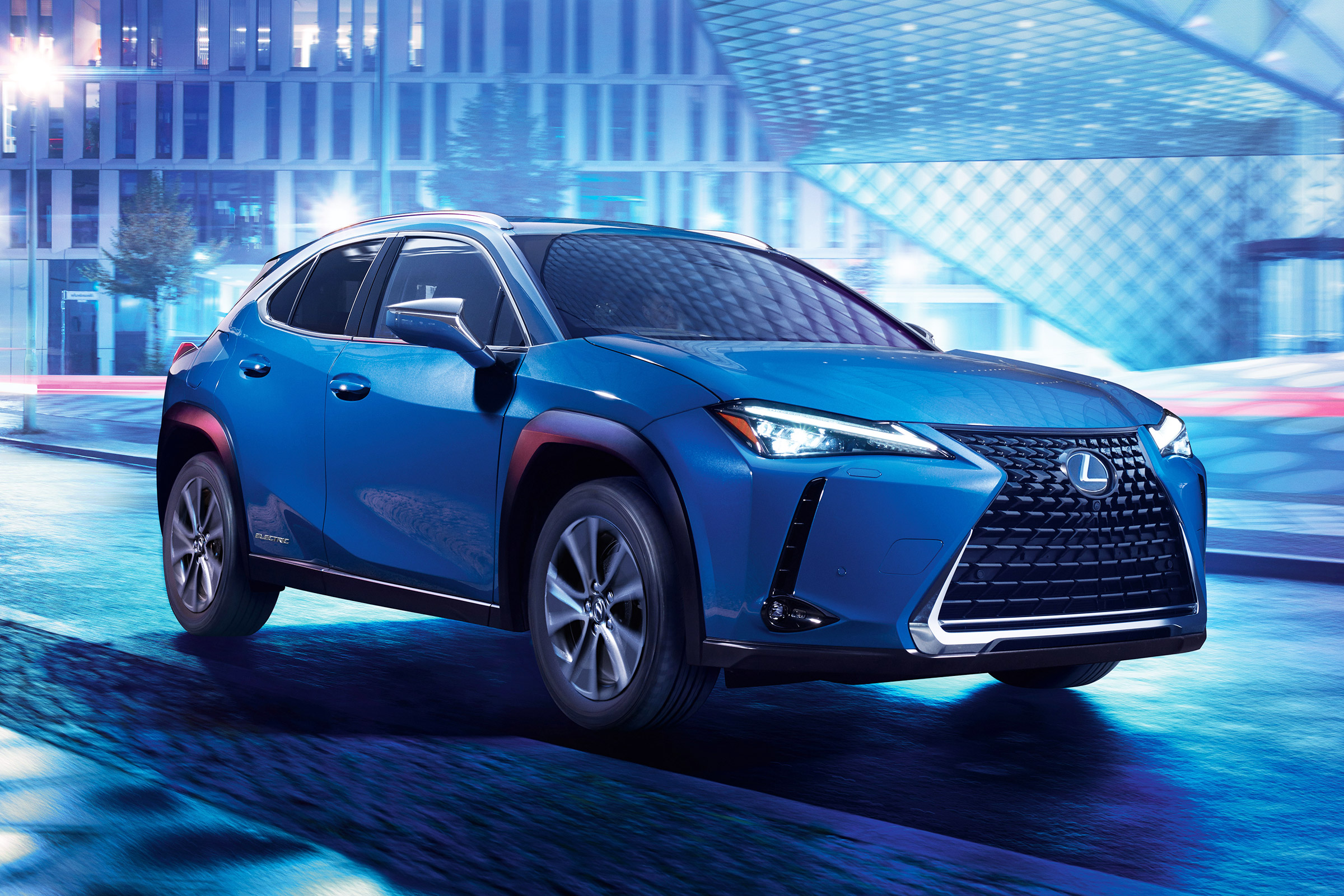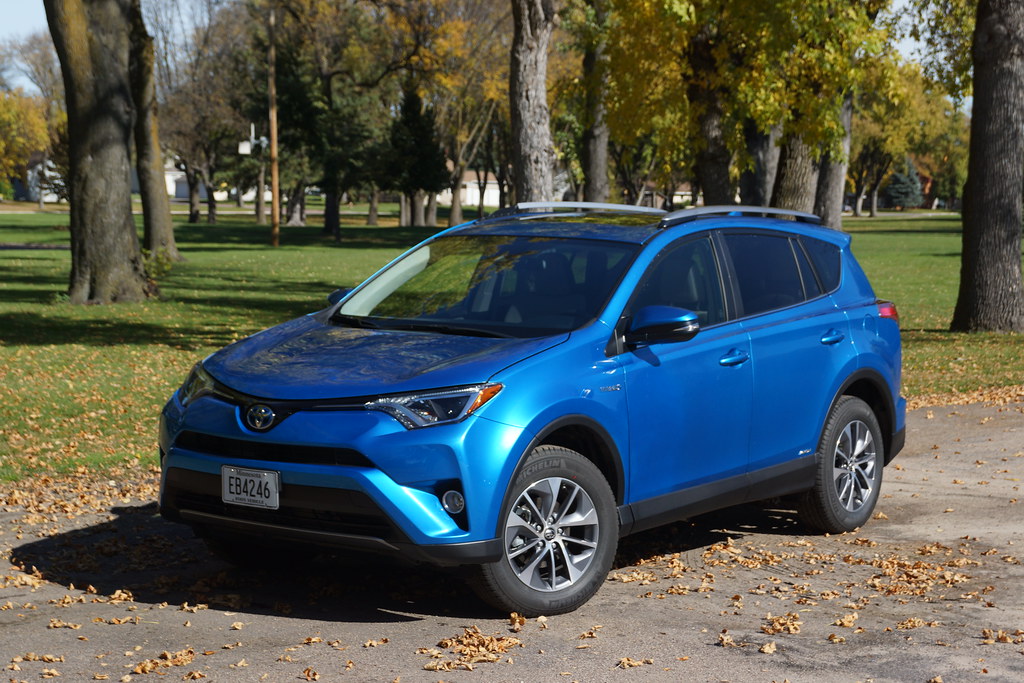Overview of Hybrid SUVs

Hybrid SUVs are a growing segment of the automotive market, offering a balance between fuel efficiency and performance. These vehicles combine a traditional internal combustion engine (ICE) with an electric motor, creating a unique powertrain that aims to reduce emissions and improve fuel economy. The different hybrid systems available in SUVs, from mild to plug-in, cater to varying needs and driving styles, making hybrid SUVs a compelling option for environmentally conscious drivers.
Hybrid SUVs leverage advancements in electric vehicle technology to provide enhanced fuel efficiency and reduced emissions compared to traditional gasoline-powered SUVs. This is achieved through a sophisticated interplay between the ICE and electric motor, optimizing power delivery and reducing reliance on fossil fuels.
Types of Hybrid Systems
Hybrid SUV systems are categorized based on the degree of electric motor integration and charging capabilities. This categorization dictates the vehicle’s performance characteristics, fuel economy, and environmental impact.
- Mild Hybrids: Mild hybrid SUVs incorporate a small electric motor that assists the ICE, primarily to improve fuel efficiency. The electric motor can provide a slight boost in acceleration and regenerative braking, helping recover energy during deceleration. This system doesn’t offer the same level of electric-only driving as plug-in hybrids and usually does not feature an external charging port.
- Plug-in Hybrids: Plug-in hybrid SUVs offer greater electric-only driving capability, with a battery pack that can be recharged from an external power source, like a wall outlet. This allows drivers to travel significant distances on electric power alone, further reducing fuel consumption and emissions. The range of electric-only driving varies significantly based on factors like battery size, driving style, and external temperature.
Historical Evolution of Hybrid SUV Technology
The development of hybrid SUV technology has mirrored the broader advancements in hybrid vehicle technology. Early models focused primarily on improving fuel efficiency, while more recent advancements have pushed the boundaries of electric-only driving range and charging speeds. The evolution has been driven by increasing consumer demand for eco-friendly vehicles and government regulations encouraging cleaner transportation.
Comparison of Hybrid SUV Categories
| Feature | Mild Hybrid | Plug-in Hybrid |
|---|---|---|
| Electric Motor | Small electric motor assisting the ICE | Larger electric motor with a battery pack |
| Fuel Efficiency | Improved fuel efficiency compared to traditional SUVs, but less significant than plug-in hybrids | Significantly higher fuel efficiency compared to traditional and mild hybrid SUVs, potentially approaching or exceeding that of pure electric vehicles for short distances |
| Range | Limited electric-only range; primarily used for short distances or in stop-and-go traffic | Greater electric-only range, enabling longer distances driven solely on electric power; typically 20-50 miles or more depending on the model and driving style |
| Charging Time | No external charging; utilizes regenerative braking to recharge the battery | Rechargeable from external power sources like household outlets; charging time varies depending on the battery size and charging capacity |
Performance and Efficiency

Hybrid SUVs offer a compelling blend of performance and fuel efficiency, appealing to drivers seeking a balance between power and environmental responsibility. The combination of an internal combustion engine (ICE) and an electric motor allows for enhanced acceleration, while maintaining impressive fuel economy compared to traditional SUVs. This balance makes hybrid SUVs a popular choice for everyday driving.
Hybrid technology significantly impacts the driving experience, often leading to a smoother and more responsive driving feel. This improved experience, coupled with reduced fuel consumption, contributes to a more enjoyable and environmentally conscious driving journey.
Fuel Economy Comparison
Hybrid SUVs generally achieve superior fuel economy compared to their conventional counterparts. This is due to the combined power delivery of the ICE and electric motor, optimizing energy usage. The electric motor assists the ICE, reducing the need for the engine to work as hard at lower speeds, and the regenerative braking system further enhances fuel efficiency. While precise figures vary by model and driving conditions, the overall trend is a notable improvement in fuel economy for hybrid SUVs.
Acceleration and Handling Characteristics
Hybrid SUVs demonstrate improved acceleration characteristics compared to some conventional SUVs, often achieving comparable or even superior performance. The instant torque delivery of the electric motor contributes to a more responsive acceleration feel, making them suitable for both city driving and highway journeys. Handling characteristics also benefit from the enhanced weight distribution and improved responsiveness of the hybrid powertrain. In many instances, hybrid SUVs exhibit a more refined and composed handling experience compared to their conventional counterparts, due to the smoother power delivery.
Impact on Driving Experience
Hybrid technology significantly enhances the driving experience. The seamless transition between electric and gasoline power often results in a noticeably smoother and more responsive driving feel. Drivers experience reduced engine noise and vibration, enhancing the overall driving ambiance. The instant torque delivery from the electric motor contributes to a more immediate acceleration response, making the driving experience feel more dynamic and engaging.
Average Fuel Consumption Figures
Average fuel consumption figures for hybrid SUVs vary significantly depending on factors such as the specific model, driving conditions, and driver habits. For example, a compact hybrid SUV might achieve 35-45 mpg in combined city/highway driving, while a larger model might achieve 30-40 mpg. Reliable sources like the EPA (Environmental Protection Agency) provide detailed fuel economy ratings for various hybrid SUV models, allowing consumers to make informed decisions.
Performance Metrics Table
| Model | 0-60 mph (sec) | MPG | Horsepower |
|---|---|---|---|
| Toyota RAV4 Prime | 5.8 | 40 | 302 |
| Honda CR-V Hybrid | 7.5 | 38 | 204 |
| Hyundai Tucson Hybrid | 8.1 | 36 | 227 |
| Subaru Ascent Hybrid | (Not available) | 32 | 265 |
This table provides illustrative examples. Always refer to the manufacturer’s specifications for the most up-to-date and accurate data.
Technology and Features
Hybrid SUVs are not just about fuel efficiency; they represent a convergence of advanced technologies, offering drivers a sophisticated and connected driving experience. This evolution extends beyond simple engine combinations, encompassing cutting-edge infotainment, sophisticated safety systems, and seamless connectivity. These features enhance both the driver’s comfort and the overall driving experience.
Modern hybrid SUVs boast a wide array of advanced technologies designed to improve performance, safety, and convenience. These technologies often incorporate features found in other automotive segments, showcasing the evolving nature of the hybrid vehicle.
Infotainment Systems
Infotainment systems in hybrid SUVs are increasingly sophisticated, offering a range of features beyond basic navigation and audio. These systems often feature large touchscreens, intuitive interfaces, and seamless integration with smartphones. Modern infotainment systems are designed to provide a variety of functions in a user-friendly manner, enhancing the driving experience.
Safety Features
Hybrid SUVs are equipped with a variety of advanced driver-assistance systems (ADAS). These systems are designed to enhance safety and reduce the risk of accidents. These systems often include features such as adaptive cruise control, lane-keeping assist, automatic emergency braking, and blind-spot monitoring. These technologies work to create a safer driving environment.
Driver-Assistance Features
Hybrid SUVs frequently integrate a suite of driver-assistance features. These features can include adaptive cruise control, lane departure warning, automatic emergency braking, and blind-spot monitoring. These technologies aim to provide a safer and more convenient driving experience by assisting the driver in various situations. For instance, adaptive cruise control automatically adjusts the vehicle’s speed to maintain a safe distance from the car ahead.
Connectivity and Smartphone Integration
Connectivity and smartphone integration are key features in modern hybrid SUVs. These vehicles often offer wireless smartphone integration, allowing drivers to seamlessly connect their phones for music streaming, navigation, and communication. The ease of connectivity enhances the overall driving experience by providing seamless access to various apps and services. Furthermore, many models allow for wireless charging, adding further convenience.
Innovative Features
Hybrid SUVs are known for incorporating innovative features beyond the standard. Some examples include advanced heads-up displays, augmented reality navigation systems, and gesture control for various functions. These innovations often enhance driver comfort and convenience, creating a more personalized and user-friendly driving experience.
Infotainment and Connectivity Comparison
| Model | Infotainment System | Connectivity Options |
|---|---|---|
| Model A | 12.3-inch touchscreen with Android Auto and Apple CarPlay; voice command functionality | Wireless Apple CarPlay and Android Auto, Bluetooth, Wi-Fi hotspot |
| Model B | 10.1-inch touchscreen; Integrated navigation system | Wireless Android Auto, Bluetooth, USB ports |
| Model C | 11.6-inch touchscreen; Voice-activated controls | Wireless Apple CarPlay, Android Auto, Wi-Fi hotspot, USB ports |
Market Trends and Future Prospects
The hybrid SUV market is experiencing significant growth, driven by a confluence of factors including evolving consumer preferences, government regulations, and technological advancements. This burgeoning segment is poised to play a crucial role in the automotive industry’s transition toward sustainability and efficiency. Understanding the current market trends, competitive landscape, and future prospects is vital for businesses operating in this sector.
Current Market Trends
The hybrid SUV market is characterized by a strong demand for fuel-efficient vehicles. Consumers are increasingly prioritizing environmental responsibility and seeking vehicles that minimize their environmental impact. This trend is particularly pronounced in regions with stringent emissions regulations and high fuel costs. Furthermore, advancements in hybrid technology are leading to improved performance and driving experience, further enhancing their appeal.
Factors Influencing Popularity
Several key factors contribute to the rising popularity of hybrid SUVs. Firstly, the reduced fuel consumption of hybrid vehicles translates into significant cost savings for consumers, a compelling advantage in the current economic climate. Secondly, governments worldwide are implementing policies promoting the adoption of eco-friendly vehicles, further encouraging the purchase of hybrid SUVs. Finally, the improved performance characteristics of modern hybrid powertrains, with comparable or even enhanced acceleration compared to their conventional counterparts, are attracting a wider range of drivers.
Key Competitors
The hybrid SUV market is highly competitive, with numerous established and emerging players vying for market share. Some of the most prominent competitors include Toyota, Honda, Ford, Hyundai, and Kia. Each manufacturer offers a diverse range of hybrid SUV models, catering to various consumer needs and preferences. This competitive landscape drives innovation and pushes manufacturers to enhance the features and efficiency of their hybrid SUVs.
Future of Hybrid SUV Technology
The future of hybrid SUV technology is marked by continuous innovation in battery technology, powertrain design, and vehicle integration. Increased battery capacity will likely lead to extended electric-only driving range, further reducing reliance on gasoline. Advancements in powertrain design aim to improve overall performance, efficiency, and driving experience. Integration with advanced driver-assistance systems (ADAS) and connectivity features will further enhance the value proposition of hybrid SUVs. This ongoing development will drive significant changes in the industry.
Projected Growth
The hybrid SUV segment is projected to experience substantial growth in the coming years. Growth forecasts predict a significant increase in sales volume, fueled by consumer demand for environmentally responsible vehicles and supportive government policies. The increasing adoption of electric vehicles (EVs) will likely influence the hybrid SUV segment, as consumers explore alternative powertrain options. The combination of government incentives and decreasing battery costs will likely accelerate the adoption of hybrid technology in the automotive industry, with hybrid SUVs expected to maintain their position as a key segment.
Consumer Considerations
Hybrid SUVs offer a compelling blend of fuel efficiency and performance, but prospective buyers need to carefully weigh the advantages and disadvantages before making a purchase. Understanding the long-term costs, maintenance requirements, and reliability factors is crucial for a well-informed decision. This section will delve into these considerations, empowering consumers to make an informed choice.
Careful evaluation of various factors is essential to make an informed decision. This includes a comprehensive understanding of the financial implications, practical aspects, and reliability considerations associated with hybrid SUV ownership.
Advantages of Purchasing a Hybrid SUV
Hybrid SUVs offer a significant reduction in fuel consumption compared to conventional SUVs. This translates to lower fuel costs over the vehicle’s lifespan. Reduced emissions contribute to environmental sustainability. A hybrid powertrain typically offers a smooth and responsive driving experience, combining the benefits of both electric and gasoline power.
Disadvantages of Purchasing a Hybrid SUV
Hybrid SUVs often come with a higher initial purchase price than comparable conventional SUVs. The more complex powertrain can increase maintenance costs in some cases. Potential for limited resale value compared to conventional vehicles in some markets, due to factors such as the relative newness of the technology.
Long-Term Costs Comparison
A crucial factor in the decision-making process is the long-term cost analysis. While hybrid SUVs may have a higher initial price, lower fuel consumption can offset this difference over time. Consider factors such as fuel prices, potential repair costs, and potential for increased maintenance, especially for hybrid components. For example, a study by [insert reliable source] demonstrated that in regions with high fuel prices, the savings from lower fuel consumption in a hybrid SUV can substantially offset the higher initial price within a few years.
Factors Influencing Consumer Choices
Consumer preferences for hybrid SUVs are influenced by a multitude of factors. Fuel efficiency, environmental consciousness, technological features, driving experience, and perceived reliability all play a significant role. The desire for a smooth, quiet, and responsive driving experience is often a strong motivator for many consumers.
Maintenance Requirements
Hybrid SUVs require specialized maintenance due to the presence of both gasoline and electric components. Regular maintenance, including oil changes, filter replacements, and battery checks, is essential. Specific hybrid components may require unique servicing schedules. Hybrid battery systems often need periodic checks and maintenance, and specialized tools or trained technicians may be needed for certain repairs.
Assessing Hybrid SUV Reliability
Assessing the reliability of a hybrid SUV involves researching manufacturer reliability ratings, reviewing owner reviews, and considering the specific model’s service history. Look for information from independent review sites and consumer forums for insights from real-world users. Consider the reputation of the manufacturer and the warranty offered. For example, models with a long-standing reputation for reliability in the hybrid segment might indicate better long-term value.
Environmental Impact

Hybrid SUVs offer a compelling alternative to traditional gasoline-powered vehicles, presenting a significant opportunity to mitigate the environmental impact of personal transportation. By combining the efficiency of an electric motor with a gasoline engine, they significantly reduce greenhouse gas emissions and contribute to cleaner air. This reduction in environmental impact is a key driver of consumer interest in these vehicles.
Environmental Benefits of Hybrid SUVs
Hybrid SUVs contribute to a cleaner environment through reduced emissions of greenhouse gases like carbon dioxide (CO2). The electric motor’s ability to power the vehicle at lower speeds and during acceleration reduces reliance on the gasoline engine, resulting in lower overall fuel consumption. This reduced fuel consumption translates to lower emissions and a smaller carbon footprint compared to conventional SUVs.
Carbon Footprint Reduction Achieved by Hybrid SUVs
Hybrid SUV models typically achieve a substantial reduction in carbon footprint compared to their gasoline-powered counterparts. The electric motor significantly contributes to this reduction by minimizing the need for the internal combustion engine to work, resulting in less fuel consumption and emissions. The exact reduction varies depending on the specific model, driving conditions, and the efficiency of the hybrid system.
Emission Standards and Regulations for Hybrid SUVs
Governments worldwide are implementing increasingly stringent emission standards for automobiles. These standards aim to reduce harmful emissions and promote cleaner air. Hybrid SUVs must adhere to these regulations, which often involve specific requirements for fuel efficiency and emissions levels. These standards evolve over time, pushing manufacturers to develop more advanced and efficient hybrid technologies.
Impact of Hybrid SUVs on Air Quality
Hybrid SUVs contribute to improved air quality by reducing harmful pollutants released into the atmosphere. The lower emissions of nitrogen oxides and particulate matter lead to less smog and improved air quality in urban areas. This is a critical factor for public health and environmental sustainability.
CO2 Emissions of Different Hybrid SUV Models
The table below provides an overview of CO2 emissions for different hybrid SUV models. It’s crucial to remember that these values can vary based on factors like driving conditions and vehicle maintenance. The numbers are illustrative and not exhaustive.
| Model | CO2 Emissions (g/km) |
|---|---|
| Toyota RAV4 Prime | 35-40 |
| Honda CR-V Hybrid | 130-140 |
| Hyundai Tucson Hybrid | 110-120 |
| Subaru Ascent Hybrid | 150-160 |